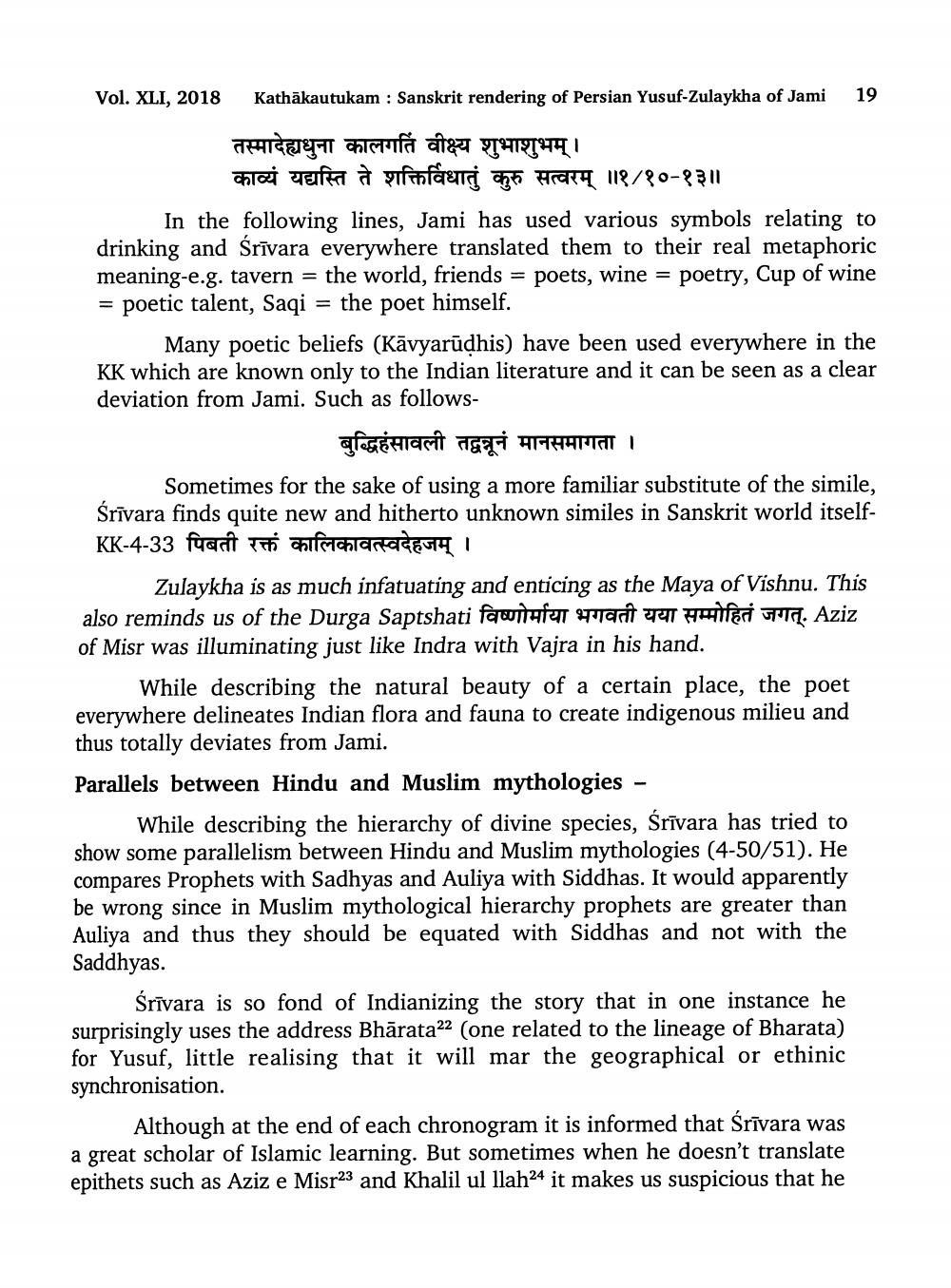________________
Vol. XLI, 2018
Kathākautukam : Sanskrit rendering of Persian Yusuf-Zulaykha of Jami
19
तस्मादेह्यधुना कालगतिं वीक्ष्य शुभाशुभम्।
काव्यं यद्यस्ति ते शक्तिर्विधातुं कुरु सत्वरम् ॥१/१०-१३॥ In the following lines, Jami has used various symbols relating to drinking and Śrīvara everywhere translated them to their real metaphoric meaning-e.g. tavern = the world, friends = poets, wine = poetry, Cup of wine = poetic talent, Saqi = the poet himself.
Many poetic beliefs (Kāvyarūdhis) have been used everywhere in the KK which are known only to the Indian literature and it can be seen as a clear deviation from Jami. Such as follows
बुद्धिहंसावली तद्वन्नूनं मानसमागता । Sometimes for the sake of using a more familiar substitute of the simile, Śrīvara finds quite new and hitherto unknown similes in Sanskrit world itselfKK-4-33 fuarit i calfschland
Zulaykha is as much infatuating and enticing as the Maya of Vishnu. This also reminds us of the Durga Saptshati विष्णोर्माया भगवती यया सम्मोहितं जगत्. Aziz of Misr was illuminating just like Indra with Vajra in his hand.
While describing the natural beauty of a certain place, the poet everywhere delineates Indian flora and fauna to create indigenous milieu and thus totally deviates from Jami. Parallels between Hindu and Muslim mythologies -
While describing the hierarchy of divine species, Srīvara has tried to show some parallelism between Hindu and Muslim mythologies (4-50/51). He compares Prophets with Sadhyas and Auliya with Siddhas. It would apparently be wrong since in Muslim mythological hierarchy prophets are greater than Auliya and thus they should be equated with Siddhas and not with the Saddhyas.
Śrīvara is so fond of Indianizing the story that in one instance he surprisingly uses the address Bhārata22 (one related to the lineage of Bharata) for Yusuf, little realising that it will mar the geographical or ethinic synchronisation.
Although at the end of each chronogram it is informed that Śrīvara was a great scholar of Islamic learning. But sometimes when he doesn't translate epithets such as Aziz e Misr23 and Khalil ul llah24 it makes us suspicious that he




